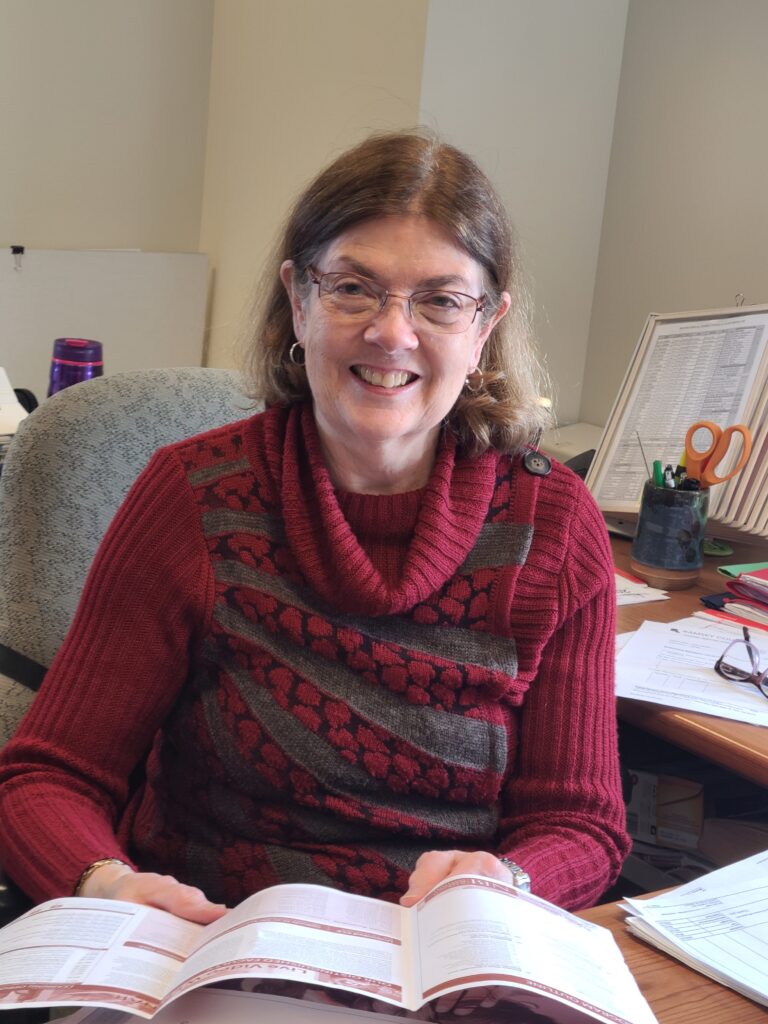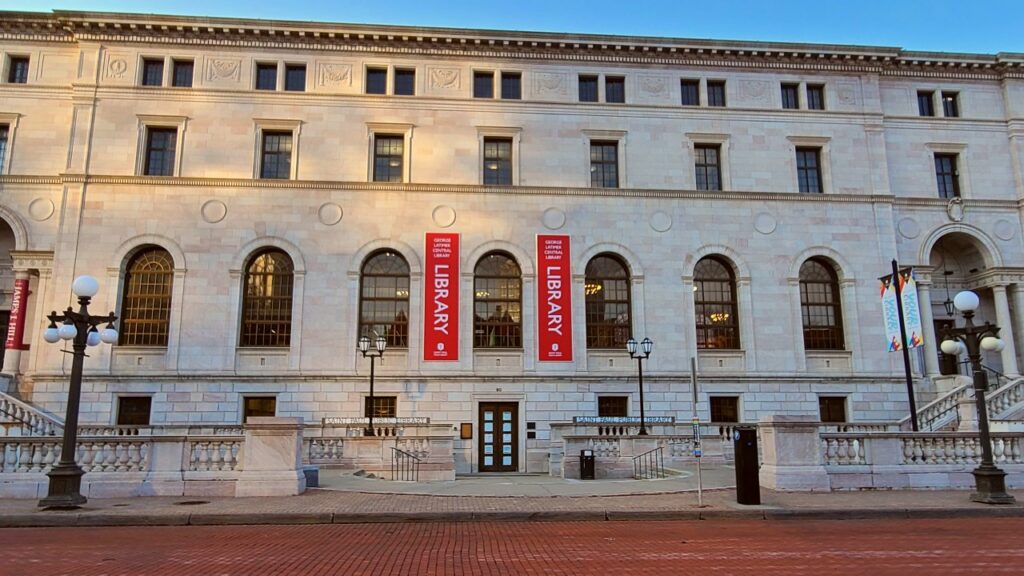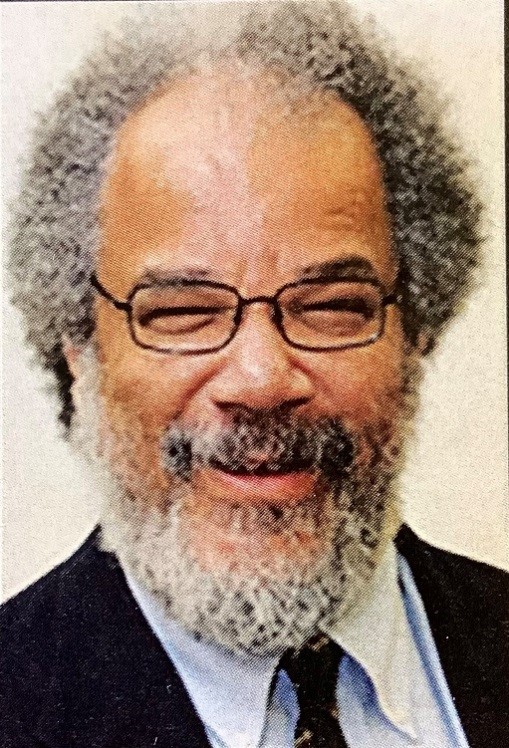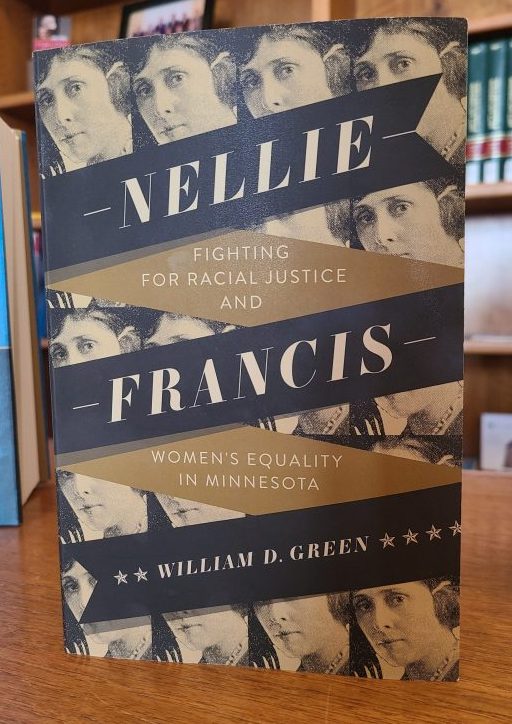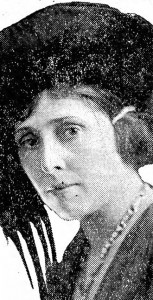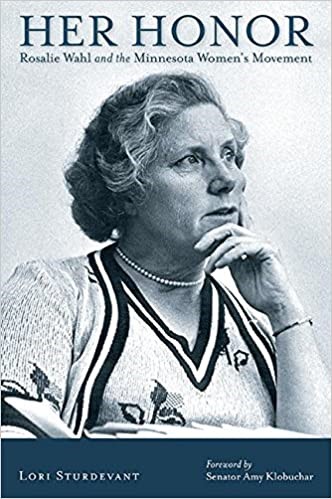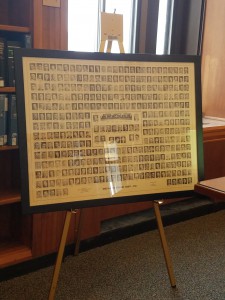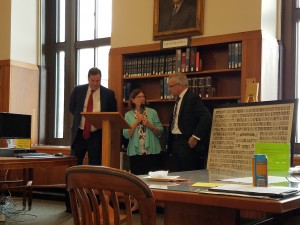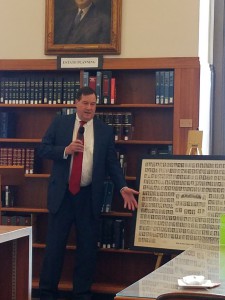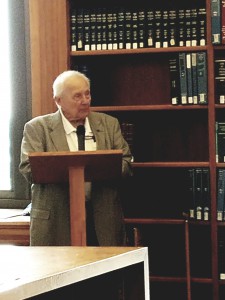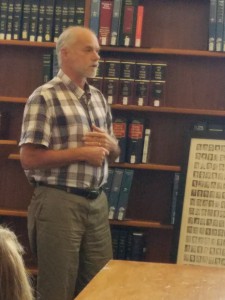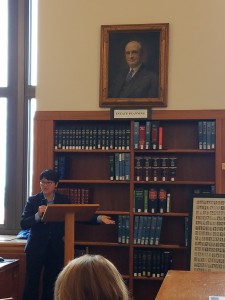Please join us in congratulating Sara Galligan on her retirement. Sara has been the Director of the Ramsey County Law Library since 2008, and she leaves the library and Ramsey County a better place.
For the past almost fourteen years, Sara has strived to make the law library responsive to the needs of Ramsey County residents. She has forged relationships with groups outside of the law library, including the Ramsey County Public Library, Ramsey County District Court, Minnesota Justice Foundation, the Ramsey County Bar Association, the Southern Minnesota Regional Legal Services, and the Volunteer Lawyers Network to establish policies and develop resources that increase access to justice.
For example, Sara managed two clinics at the law library. The Housing/Conciliation Court clinic is open to Ramsey County residents or those with a case pending in Ramsey County. The law library also hosts the Criminal Law Clinic, which is open to anyone living in Minnesota. In addition, the law library provides space for Ramsey County’s Criminal Expungement clinic, which suspended operations during the pandemic, but hopes to open later this year.
Sara was also the impetus that created the law library’s Antiracism Booklist, and continues to advocate for collecting titles that help readers learn about cultures and life experiences different from their own. This forward-thinking attitude is also reflected in the library’s collection development policy, which was approved by the Law Library Board of Trustees last December.
Sara’s work in bringing access to justice issues to the forefront was recognized nationally when she chaired a special committee of the American Association of Law Libraries that created a report on Law Libraries and Access to Justice. She is also an active member of the Self-Represented Litigation Network, and with her colleagues created a story map 2019, which shows how self-represented litigants are helped by law libraries.
In addition, her leadership skills have been recognized not once, but twice by the Minnesota legal community. Minnesota Lawyer sponsors several annual awards to recognize outstanding members of the profession. In 2003, Sara was recognized as an “Up and Coming” attorney. This award honors newer attorneys to the Minnesota Bar who have significant professional accomplishment, leadership service to the community and the profession. In 2015, Sara was once again honored, this time as an “Unsung Legal Hero.” The Unsung Legal Hero Award is presented to the state’s most talented and dedicated legal support professionals.
In 2019, under Sara’s leadership, the Ramsey County Bar Association honored the Law Library with the Liberty Bell Award. This award is presented annually to honor one non-lawyer’s activities that greatly benefit our legal community and our Ramsey County citizens by increasing the effective functioning of our government and courts through understanding, encouragement, and respect for our institutions and the rule of law.
The law library is going to miss Sara, not just for her leadership but also for the example she has set for other law librarians in Minnesota. Congratulations Sara! All the best for a well-earned retirement.

